|
As we stood at the gate to the pen holding the enormous Black Angus and her recently born calf, it would soon become clear who among us grew up on a farm. I suspect that cow outweighed all of us combined. Just how protective would she be of her baby? We were trying to find the Goodlett cemetery, which my cousin Sandy believed was somewhere on the ridge on the other side of that pen. The owners of the property—whom we did not know—were not home, but we had received the babysitter’s permission to trek across the farm. The somewhat rickety wire fence establishing the boundaries of the pen was reinforced with new, tautly strung barbed wire from top to bottom. On either side of the pen was dense vegetation—waist-high on me. The ground was deeply rutted by the cattle that had grazed there. As we were examining our options, I looked up to see Bob and Charley climbing the fence into the pen. They walked purposefully toward the other end, the mother alternately snorting at them, pawing the ground, and walking menacingly in their direction. In the end however, she chose to stay close to her calf, who was still wobbly on his feet. She let the two pass unmolested. The rest of us city slickers watched in awe. Rick and I are typically up for any adventure. And it was clear the family patriarch, Sandy, was not to be deterred. The three of us figured we had missed the opportunity to walk through the pen. The mother might have put up with that once, but we doubted she would tolerate another mob now that she was alert. We instead managed to navigate the barbed wire and drop over the fence into the deep weeds on the south side of the pen. Perhaps a hundred yards along, the three of us found a way to climb back over the well-fortified fence and join the other two. We trudged along, all secretly wondering what fool’s errand we had so gleefully undertaken. As we approached a copse of trees at the top of a small rise, we caught a glimpse of our holy grail: an elaborate wrought iron fence. We somewhat clumsily breached the wire fence strung among the trees on the exterior perimeter and soon found ourselves peering over the sturdier iron fence that protected the Goodlett family graves. The ornate crosses set at regular intervals on that fence presented yet another obstacle. With my small feet, however, I managed to get a toe-hold and hop the fence without too much trouble. Shortly thereafter, Sandy—clearly the best problem-solver in the group (take note, Lawrenceburg residents, as you choose your next mayor)—managed to pull away a part of the fence that had been secured by rope, so everyone could get a closer look. Among the opportunistic trees and weeds and errant ground cover were the gravestones of our great-grandfather and great-great grandfather and their wives. Bobwhite called out as we carefully pulled away the weeds and squinted to make out the inscriptions on the older markers. It was the highlight of a remarkable day spent traipsing across Anderson County searching for our ancestors. The graves of the Moore family—our common grandmother’s relatives—were easier to find and well-maintained, perhaps because of the prominence of her father, Rev. William Dudley Moore, a well-known minister of his era who performed hundreds of marriages and funerals in the county—including the funerals of John Thomas Goodlett and his wife, Virginia Campbell “Jennie” Goodlett, both buried in the graveyard we had just uncovered. The family of the Goodlett our grandmother married, however, was a little more obscure and, as his descendants, we know less about them. So I was ecstatic to find this burial plot and drive around a remote part of Anderson County—southwest of Lawrenceburg near Washington County—that I had never visited. This has been one of the most rewarding aspects of pulling my cousins close late in life. As we lose our siblings—or simply lose touch with them—we can invest time and emotion in that next ring of relatives, our cousins who share our DNA, childhood experiences, and family folklore. I have to think that Pud, Virginia, Vincent, and Billy—the Goodlett siblings who brought us into this world—would be happy with our efforts to get better acquainted with our ancestors and with each other. It may have been a foolhardy trek across somewhat forbidding land and past its 1,000-pound sentry, but we did indeed remain cheerful despite the rather obvious hazards. And the reward—a peek into our family’s past—far outweighed that matronly beast.
2 Comments
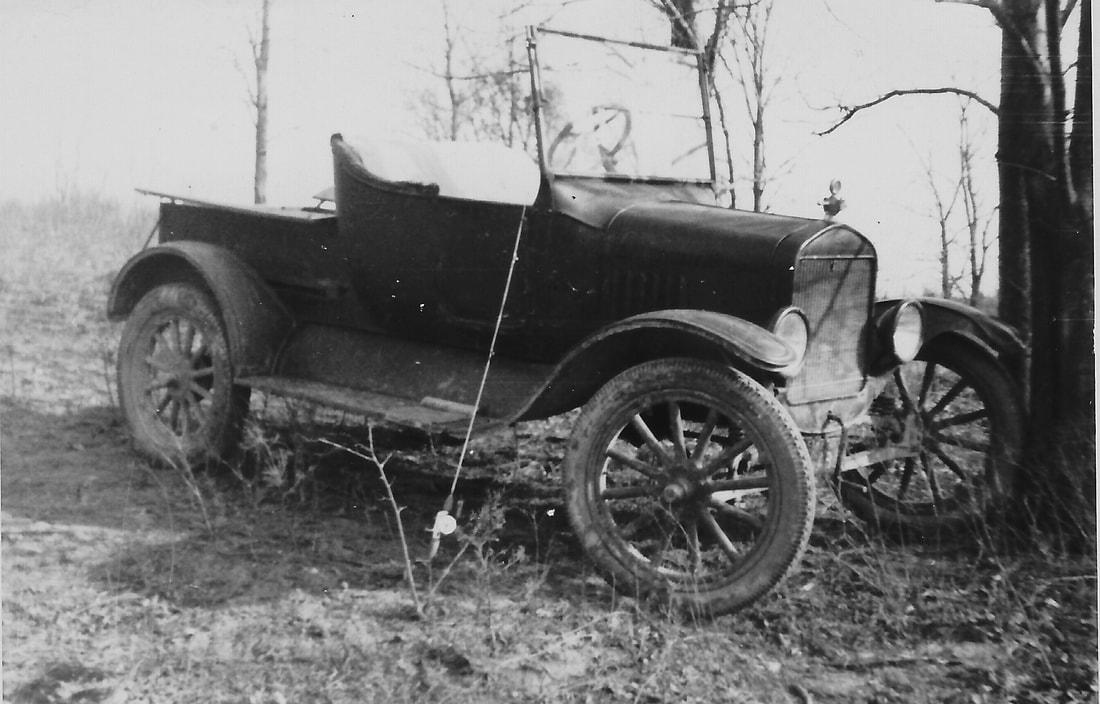 Pud’s ever-faithful 1925 Model T pickup, Thomas, prior to its violent demise on the night of August 22, 1942. Note the fishing pole leaning against the door. Pud’s ever-faithful 1925 Model T pickup, Thomas, prior to its violent demise on the night of August 22, 1942. Note the fishing pole leaning against the door. David Hoefer, of Louisville, Ky., is co-editor of The Last Resort and the author of the book's Introduction. If you would like to share your thoughts on Clearing the Fog, contact us here. Some knock midcentury America for its supposed philistinism—remember, we’re talking about the generation that survived the Great Depression and would go on to win World War II, create history’s mightiest economy, and put men on the moon. Is being expert in the consumption of esoteric culture really a laudable achievement? That said, there is a somewhat naïve, but also affective, quality to the camp journal in The Last Resort. This comes across in the relationship Pud Goodlett has with the two great loves he references, neither of which at age 19 was a young woman. I’m referring to Mike, his dog, and to Thomas, his 1925 Ford Model T pickup. It’s Thomas that helps put to rest the notion of a sophistication deficit as a defining characteristic of the pre-war population. The Ford Model T was, of course, one of the signal success stories of American business. Henry Ford didn’t invent assembly-line production or standardized machine parts, but he was the first automobile manufacturer to wed mass-production techniques to design and marketing concepts. Just as importantly, his was a car for the middle rather than the upper classes, both domestically and abroad. In production from 1908 to 1927, the Model T ultimately recorded sales of 16.5 million units. This explosion in low-cost but relatively fast transportation, with top speeds of 45 mph, had enormous impacts on American society, some good, some not so good. Automobile owners found themselves with the means to escape the intellectual isolation of a small town, but in the process they stumbled into the psychological isolation of an even smaller car—perhaps a busier version of loneliness. But automobiles—and automobility—can foster values and virtues as well. As the philosopher Loren Lomasky has argued, freedom of movement, as aided by the triumph of horsepower over horses, can be important to the pursuit of life-projects: “Movement, therefore, does not simply describe getting from here to there; it has normative richness. To move is to progress—though, of course, it can also be to backslide. Only stasis is morally neutral, and ours is a dynamic universe. The greater the variety of dimensions through which an individual transforms itself and things it encounters, the greater the scope for evaluative concerns. The grounds on which human beings appraise themselves and their fellows will be much richer than, say, the standards applied to horses or bottles of wine or the performance of machines. For people, there is not only a better or worse but a chosen better or worse toward which we deliberately direct ourselves. Intelligent automobility is crucial to the elevated status of human beings vis-à-vis other beings.” (Lomasky, Loren E. “Autonomy and Automobility.” The Independent Review, Vol. II, No. 1, Summer 1997, pp. 5-28.) I suspect that Thomas was important in exactly this manner—he gave Pud the gift of automobility, of independent pursuit. He added to the richness of Pud’s experiences and pointed toward new vistas along the muddy, rutted roads of Anderson County. Beyond these, at much further distances, were the vistas that Pud eventually chose or had chosen for him: war under Patton in Europe, marriage to Mary Marrs, Harvard and Harvard Forest, teaching and scholarship at Johns Hopkins. There was nothing of the bumpkin in any of this. Thomas’s end was opera buffa slapstick if not exactly funny, demolished by moonlight on August 22, 1942, when striking another vehicle on the way to Camp Last Resort. Neither car had its headlights on, a common power-saving trick in those days. The personal injuries weren’t life-threatening, but poor old Thomas was a twisted wreck, shortly to be replaced by Pud’s second car, Westbrook, a 1934 Chevy. Like Moses, Thomas never entered the Promised Land, always waiting patiently for Pud at the head of the final footpath the boys took to camp. Here at least Mike the dog, who followed his master everywhere, had a singular advantage over the intrepid but less sure-footed Thomas. Here’s a nicely done five-minute video clip about the Ford Model T, courtesy CarDataVideo’s YouTube channel. 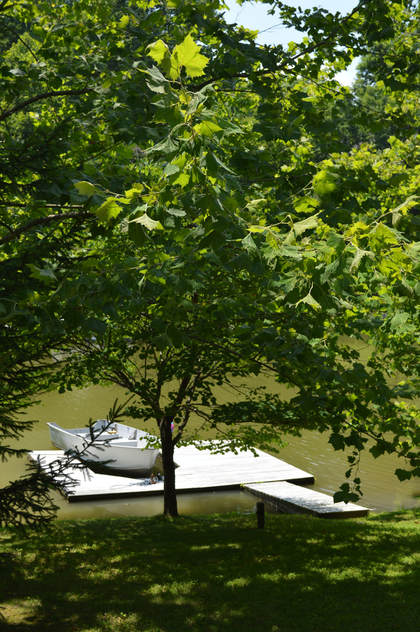 The old metal johnboat, awaiting a trip on the lake. Photo by Rick Showalter. The old metal johnboat, awaiting a trip on the lake. Photo by Rick Showalter. In July 1942, Pud was attending summer school at the University of Kentucky. If he made any trips out to Camp Last Resort that month, he didn’t document them. In July 1943, he was already training at Camp Wolters, Texas, a member of the Enlisted Reserve Corps of the Army. Of that ordeal, he writes the following to his sister, Gin; her husband, Len; and their son, Slug (short for “Sluggo,” Pud’s nickname for young Dave Fallis): "Well, here I am at the end of my fifth week of the training cycle, and I still don’t know whether we’ll take the full thirteen weeks or not. I suppose you know by now that I took my final OCS physical exam last Friday—or rather Friday before last—and passed O.K. "The weather is fine today—the sky is completely overcast and it’s only about 90°—perfect for relaxing. It’s been rather hot—several days last week hit 120°. This part of Texas is really not so bad. The country is flat except for low flat-topped hills, and although the trees are almost all stunted, there are plenty of them—mostly post oaks. The soil is all sandy, in fact it’s not soil—it’s sand. Horned toads, jack rabbits, and chiggers abound, as do the sand burrs, which are the sharpest stickers you ever saw. They grow on very low plants everywhere, and simply cannot be seen, but every time I sit down, I find them. "You’d die if you could see my face—my nose, chin, and both cheeks peel constantly, but my upper lip actually feels like cardboard. And don’t believe that I’m getting fat—the OCS physical only weighted me in at 133—so there!" As I enjoy a stretch of languorous summer days beside my little manmade lake, I occasionally think how my father would have appreciated this setting. My backyard is filled with healthy trees planted randomly or allowed to grow where they please: sycamores, tulip poplars, redbuds, several types of oaks and hickories, a beloved black gum, a red maple, a couple of birches and bald cypress trees we planted near the water to replace the willows and cherries we lost, and Norway spruces and a few cedars we’re encouraging to grow into a natural barrier to shield us from others who recreate on the lake. About 30 feet from my backdoor I can step onto a small dock that juts into our little cove. Moored to the dock in its custom-shaped slip is an old metal johnboat, sturdy and indestructible, awaiting anyone wanting to head out onto the lake to fish for the plentiful largemouth bass. The boat has stood sentry over the west side of the property through three homeowners. It’s largely retired now, which is a shame, usually left behind when the fleeter kayaks and stand-up boards get a turn on the lake’s placid water. I think my father would have loved that I have settled on a small body of water in central Kentucky. It may not be a natural river with fishing holes and snags and treefalls. It may not change much with the seasons or with the level of rainfall. But it provides ready access for swimming nearly six months out of the year and easy fishing any time we’re willing to give it a try. We seem to have fewer snakes than Pud and Bobby encountered on the cliffs along Salt River, but we have an enormous variety of birds and lots of turtles—which appear safe from bored young men while sunning on their logs. Manicured lawns have largely displaced the wildflowers, but there are still areas of the neighborhood where mowing is erratic and the butterfly weed and bee balm and chicory occasionally peek above the grasses. And what would Pud and Bobby have thought about the deer—does, bucks, and fawns—that regularly graze on our lawn or bed down among our garden plants for the night? During our first years here my husband and his buddies enjoyed a good bit of fishing on the lake. My dad’s old tackle box and fly rods stood ready in the storage room that opens to the back patio. I would occasionally find Rick sorting through the antique lures and fishing paraphernalia, either looking for something new to try or just reveling in the oddity of it all. A Styrofoam container of earthworms was usually in the basement refrigerator, along with the beer. Yeah, I think Pud would have enjoyed this spot. I can almost see him stretched out in an old camp chair in the backyard, a Budweiser or a glass of bourbon in one hand, a cigarette in the other, watching the Green Herons or the Kingfishers as they swoop down the lake. 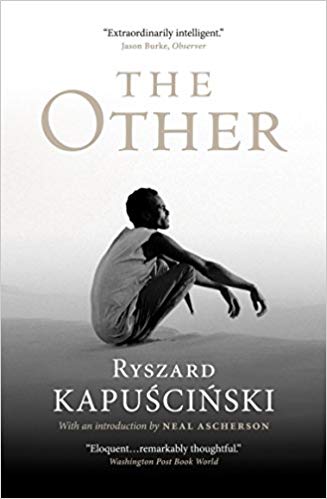 Tim Cooper of Oakdale, Minn., responds to the blog Imagining Community. If you would like to share your thoughts on Clearing the Fog, contact us here. I have been thinking about Anthony Bourdain. I have been thinking particularly about his now somewhat countercultural paraphrase of a nineteenth-century French writer: “A gentleman never undermines the dignity and self-respect of another.” In all corners of the world, close and distant, forces concertedly whittle away at individuals’ dignity and self-respect. We separate children from parents because “they” are not us. We demonize the “other” because it makes us feel superior. And, perhaps most perniciously, we condone the environmental degradation of areas where others live while jealously guarding our own domains. I read with interest Sallie Showalter’s recent blog Imagining Community. Her piece is a call for all of us to read, and to read widely. She asserts that by reading we can vicariously experience lives different from our own and thereby gain a transcendent understanding of the world. I was particularly pleased to see her reference to the late Polish journalist Ryszard Kapuściński’s collection, The Other. In a review of this work in The Guardian, Jason Burke writes: “Every person we 'meet along the road and across the world' is 'in a way twofold', he (Kapuściński) says. First, there is 'a person like the rest of us', who has 'his joys and sorrows, does not like to be hungry or ... cold, feels pain as suffering and good fortune as satisfying and fulfilling'. But there is the second person, 'who overlaps with the first'. He is 'a bearer of racial features and ... a culture, beliefs and conviction'. These two entities co-exist and incessantly interact. Anyone who has travelled through our supposedly 'flattened' world in recent years can confirm this. Few can deny the emotional pull of the tribe, the nation, the linguistic community, or the difference of peoples, races, languages, cuisines, traditions and histories. This has proved the great flaw in the doctrines of liberal interventionism and neoconservatism. Much of development theory clings to an economic vision of growth, underplaying the emotional. But the two beings outlined here are frequently in conflict and the second often wins.” And so the novelist’s imagination is a prompt for understanding. Robert Coles, in his cogent work The Call of Stories, writes that the poetry and prose of William Carlos Williams “urges intense, searching self-scrutiny.” The stories and drama of Anton Chekhov prompt us to “a close look not only at ourselves, but at others, at the terrible contrasts of this world.” 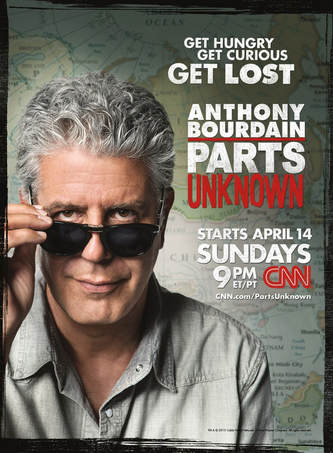 Travel, too, is the anodyne of smugness and intolerance, where riding public transportation is the norm and engaging in conversation with a cab driver, a restaurant server, or a fellow traveler can be a profound educational experience. Anthony Bourdain brilliantly evoked this ethic throughout his work. Whether acknowledging his host’s gracious hospitality by eating food that was clearly outside his comfort zone or conversing with manual laborers, restaurant dishwashers, or subsistence farmers, Bourdain showed us how to travel, how to interact respectfully with those who are not like we are, and how to be ever aware of those who suffer. Surely embracing his vision will only make us wiser. 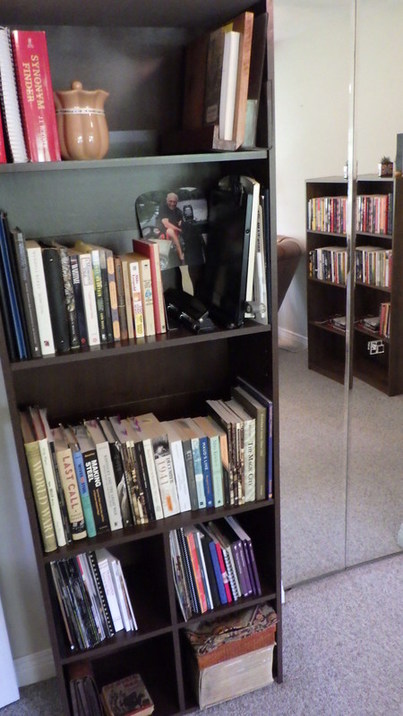 Ahhh...Two bookcases now filled with books (one reflected in the mirror). Thankfully there is still room for expansion. (Photo by Rick Showalter) Ahhh...Two bookcases now filled with books (one reflected in the mirror). Thankfully there is still room for expansion. (Photo by Rick Showalter) This writing business sure requires a lot of books. As I entered my office a few days ago, I had to wade through books filed in boxes, books in paper shopping bags, books stacked on the floor. My office is small, and I could barely find a pathway from the door to my desk. I am surrounded by books that I need to read because they have something in common with the novel I’m trying to write: a similar structure, perhaps, or a similar narrative approach or a common historical setting. In my growing collection are nonfiction books about World War I, Prohibition, racial violence, the steel industry, coal camps in Eastern Kentucky, and Lexington’s most notorious madam. There are historical photo collections from the various cities where my maternal grandfather spent some period of his life. There are books on the craft of writing that I continue to hope will inspire me to write something worth reading. I have written before about my passion for collecting books. Evidently it’s unslakable. I am proud that I still value books, particularly in light of recent reporting that “The share of Americans who read for pleasure on a given day has fallen by more than 30 percent since 2004.” I described last week how reading can increase empathy, a quality we all need to embrace in these times. But despite my plea for everyone to read more, my friends know how I struggle to find the time to read all that I want. Nonetheless, I never question that reading is time well spent. And I recognize the luxury of being surrounded by books I love. But recently the sheer number of volumes has multiplied, due in part to the overwhelming generosity of a friend and mentor and in part to the consolidation of references my chief researcher had acquired over the past several years. Something had to give. So this weekend, my husband—the hunter-gatherer of the family—found a $50 bookcase to help me get my office back into some sort of order. With any luck, my thinking will become a bit clearer as the room becomes more uncluttered. 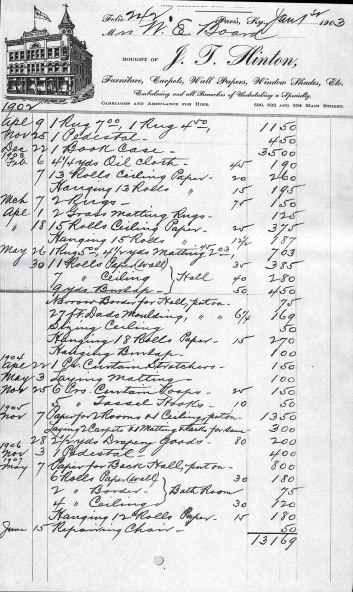 In doing research for the novel, I discovered that my predilection for books may go back several generations. At the beginning of the twentieth century, my maternal great-grandmother ran into some trouble keeping up her accounts with local shop owners. In May 1908, as many businesses were still recovering from the Panic of 1907, J.T. Hinton—the proprietor of a Paris, Ky., home furnishings store as well as a funeral director and the future mayor of the city—filed a suit against Mrs. W. E. Board for payment of a past due account amounting to $131.69. The purchases on the tab went back to 1902, and by far the most expensive item on the account was a $35 bookcase (the third item listed in the exhibit filed with the suit, left). 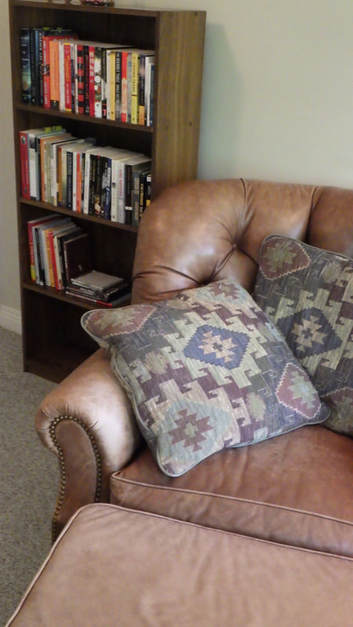 Maybe it’s a genetic compulsion. I can only hope that I find more time to enjoy the “writing” library I have amassed—a library that is now neatly arranged on shelves rather than scattered among various trip hazards on the floor. Perhaps eye-level reminders will be all I need to start a marathon summer reading spree. |
Details
Archives
June 2023
Categories
All
|

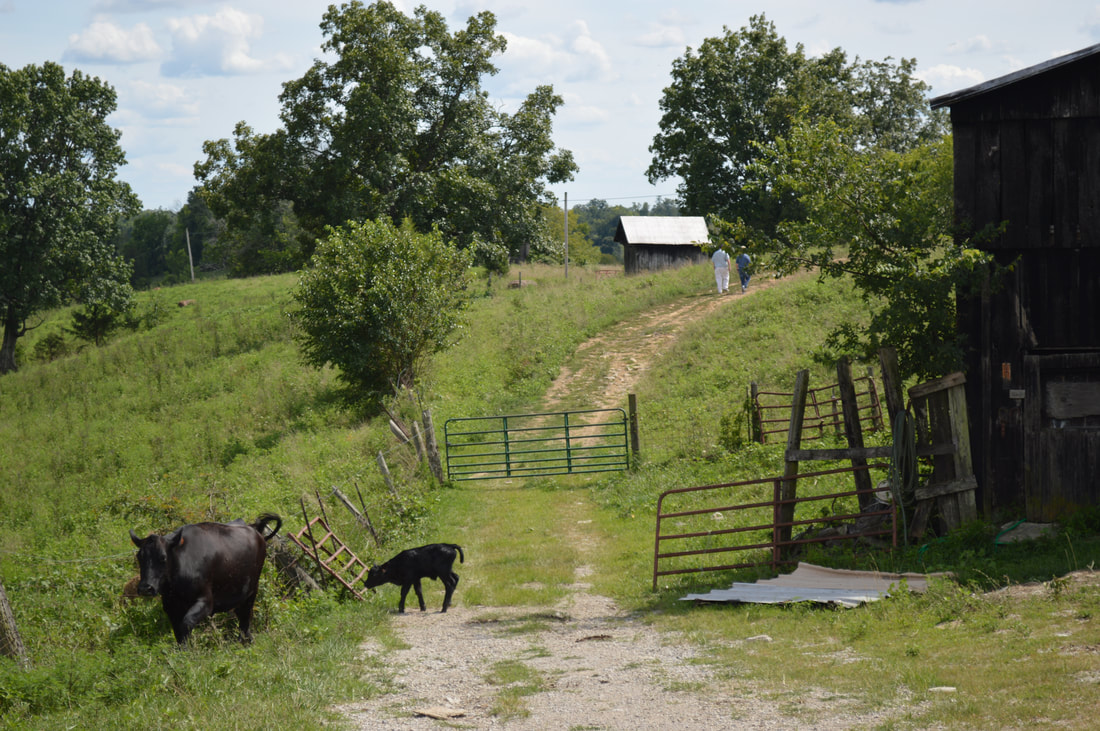

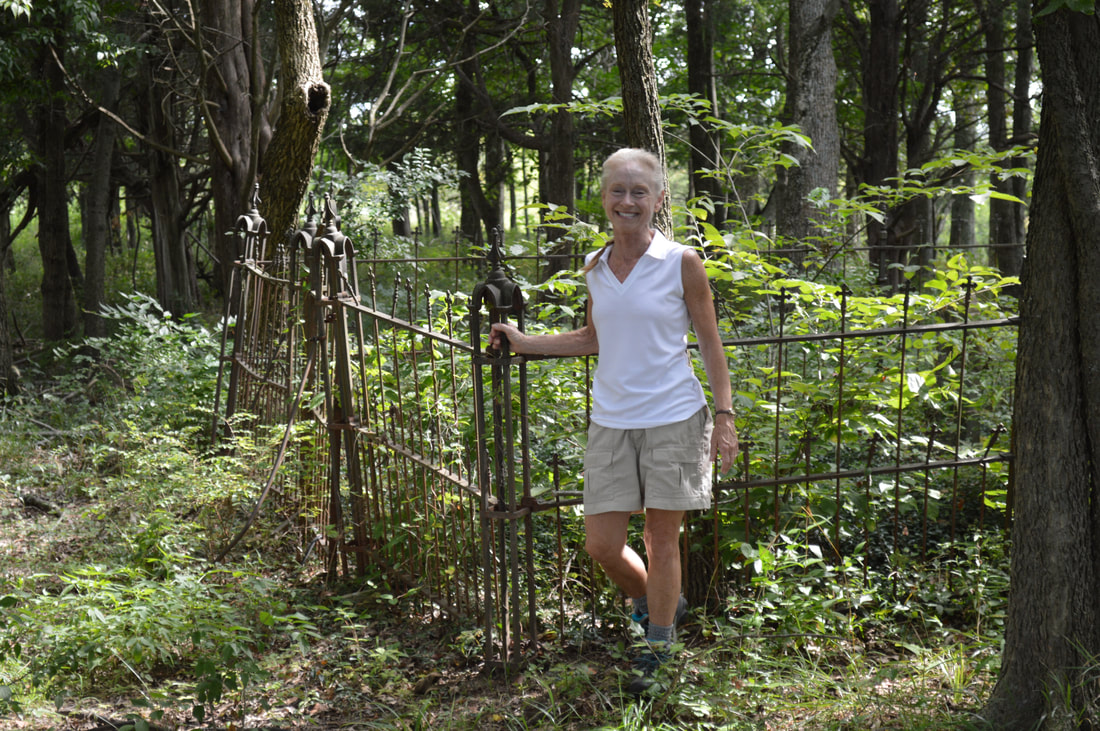
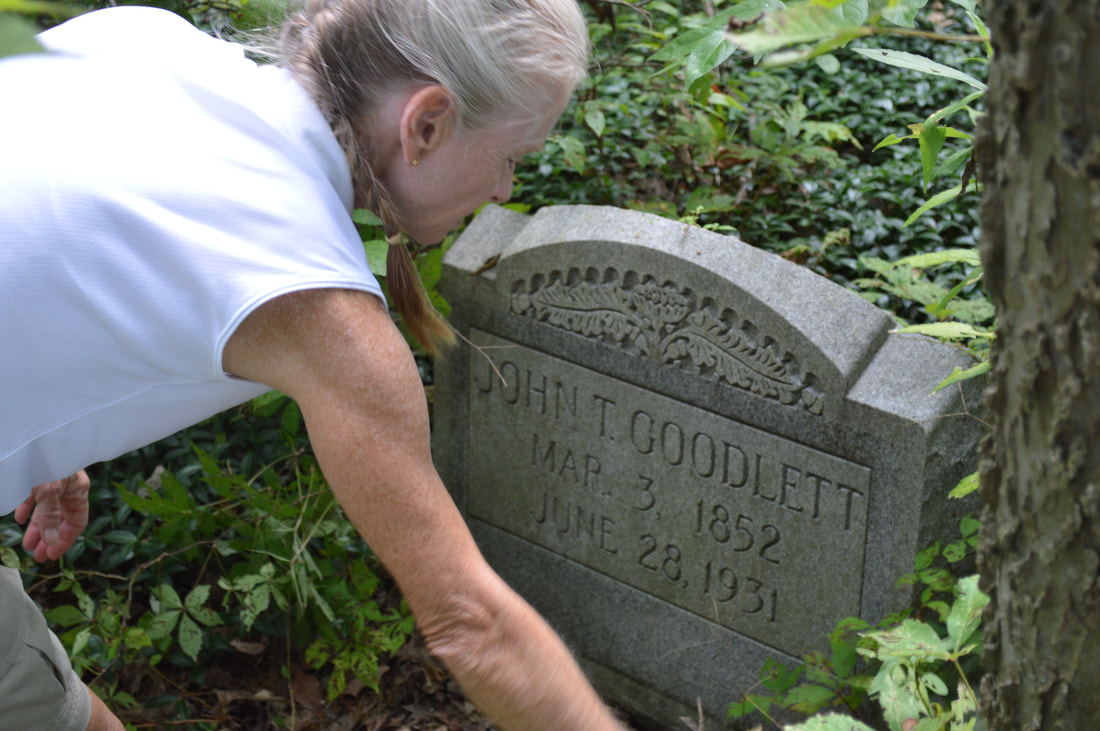
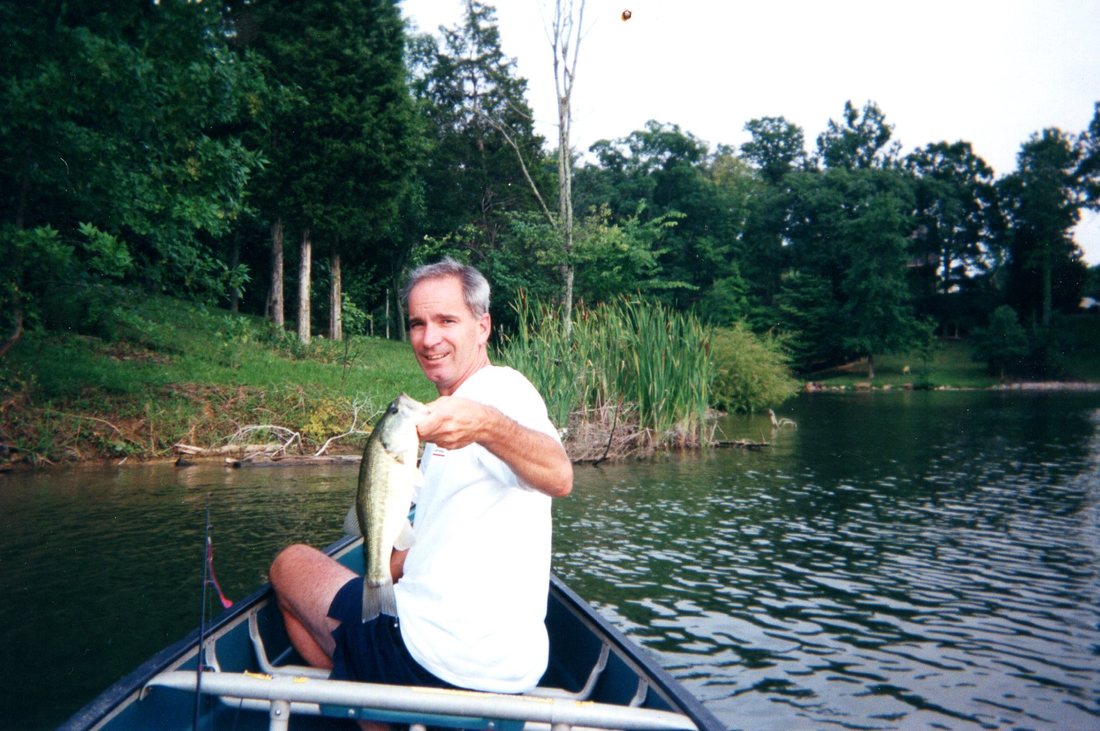
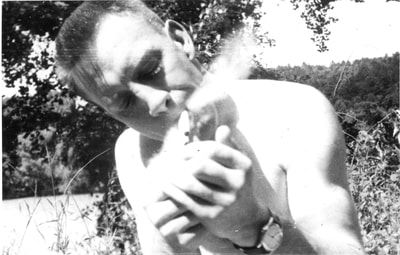
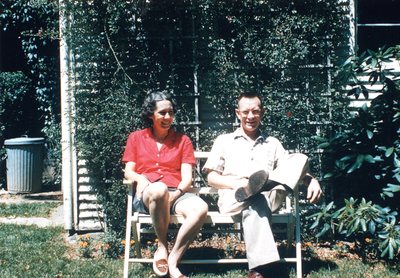

 RSS Feed
RSS Feed